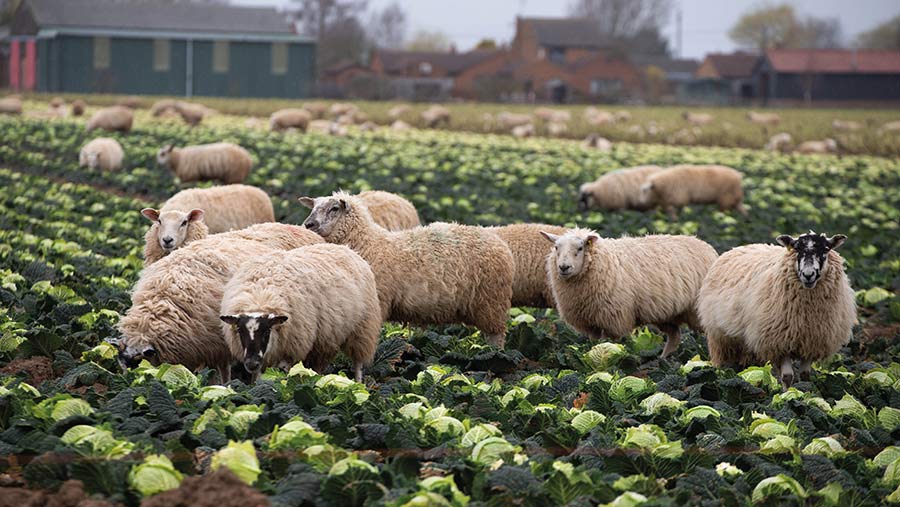Opinion: Agro-ecology holds the key to fighting climate change
 © Tim Scrivener
© Tim Scrivener Since the pledge at COP26 to reduce global methane emissions by 30% by 2030, we’ve seen a backlash from British farmers, fed up with all the bad press.
I can sympathise – as a sheep farmer, I know pasture-based ruminants can be great for wildlife and soils.
So, who needs to act? One no-brainer is to fix leakages from fossil fuel supply chains, which contribute around a third of methane emissions. But farming must play its part.
See also: Should you consider agroforestry on your farm?
About the author

Liz Bowles is head of farming at the Soil Association – one if the UK’s organic certification bodies. Liz holds a BSc in Animal Science and is a Nuffield scholar. She manages one of the largest pedigree flocks of Shropshire sheep in the UK and combines this with being a council member of the Breed Society.
Here she argues that a move to more agro-ecological farming is essential to help counter climate change
We cannot continue as we are and reach net zero, and our future depends on that. We have no choice. Yet food system emissions and intensive animal farming, particularly chicken production, is on the rise.
There’s much to defend in British farming, but we’re at a tipping point, and we must steer towards better standards overall.
Rather than removing red meat and dairy from the face of the earth, I believe we must consider other factors. We cannot fix the climate without reversing nature’s decline, so we cannot tackle emissions in isolation.
We must meet the methane pledge while prioritising farming that allows nature to thrive. And as food poverty, obesity, and diet-related poor health continues to soar, it’s clear diets must change.
To do these things, we can look to the model set out in the Ten Years for Agroecology in the UK study.
This pathway to nature-friendly farming allows us to reduce overall emissions by 40% while recognising that British land and weather is suited to ruminants.
And that’s before we add carbon benefits from tree planting in agroforestry and sequestering more carbon in soils.
But it requires us to eat less meat, by moving away from intensive livestock farming to more mixed farming without artificial inputs or deforestation-driving animal feed. Nature must be protected, with inputs reduced.
Curbing nitrogen is key – aside from escalating costs, some 43% of emissions from every loaf of bread we eat comes from artificial fertilisers used to grow wheat.
It’s inconceivable to think we can continue this and reach net zero within agriculture.
We need commitments to tangible solutions we can deploy right now. The locally sourced menu at COP26 should be the norm in public procurement, with the £2.4bn UK food service food bill diverted to British, sustainable products.
We also need incentives for delivering whole-farm environmental benefits, rather than just for single practices. And trade deals shouldn’t allow substandard imports to undercut us.
On farm, we need to change focus, and who better to drive that than farmers? Investment in farmer-led research is crucial.
Wheat farmers and hop growers working with the Innovative Farmers network are investigating varieties under a range of growing conditions, rather than focusing on those that respond best to artificial fertilisers.
Instead of yield, we could prioritise maximum sustainable output – what we can get without damaging the land’s natural value.
As well as more mixed farming, we also need to bring legumes into crop rotations profitably, with more peas and beans in livestock concentrate feeds.
And we must develop more of a taste for them ourselves to help reduce meat and dairy consumption to sustainable levels.
We are addicted to “cheap” soya, “cheap” nitrogen and “cheap” meat. But the true costs are always paid somewhere. How much longer should farmers, wildlife or the climate pay those costs?
